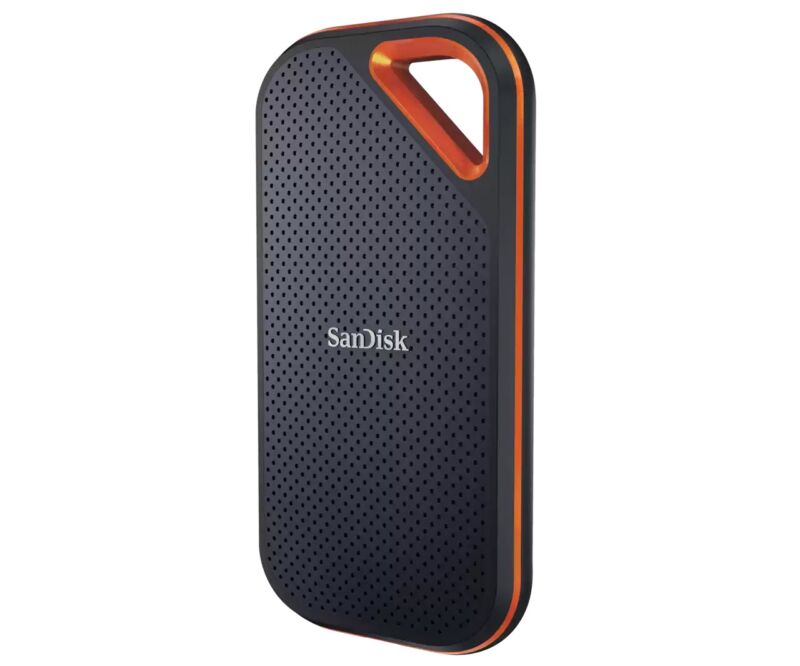
SanDisk customers have been complaining about the company's Extreme and Extreme Pro portable SSDs suddenly wiping data and, in some cases, becoming unreadable. Complaints go back at least four months, and SanDisk told Ars today that a firmware fix is coming "soon." However, SanDisk only confirmed a firmware update for the 4TB models, despite an Ars staffer and online users reporting issues with 2TB drives.
An Ars reader tipped us (thanks!) to online discussions filled with panicked and disappointed users detailing experiences with recently purchased Extreme V2 and Extreme Pro V2 portable SSDs. Most users seemed to be using a 4TB model, but there were also complaints from owners of 2TB drives.
In a thread about 4TB Extreme Pro drives in a film and video editors subreddit, a Reddit user called ian__ wrote:
Multiple DITs/Loaders/ACs on both coasts have experienced the exact same failure with these drives over the last month.The symptom seems to be that after a sustained write they will completely lose their filesystem and it's a total crap shoot [whether] you can recover it or not. The primary way you will see this is that the drive will unmount and you will not be able to get it to mount again, despite showing up in Disk Utility. You can sometimes recover it using DiskDrill's filesystem rebuild, but occasionally that does nothing. It persists with any filesystem type.
The thread, as well as other threads on Reddit (here, here, and here), show the problem extending to the non-Pro 4TB drive, as well as the 2TB Pro drive (it's unclear if the 2TB non-Pro Extreme is affected).
Ars Technica's Lee Hutchinson confirmed suffering not one, but two 2TB Extreme Pros dying. After filling about halfway, each drive met a slew of read and write errors. When he disconnected and reconnected the SSD, it showed it was unformatted with the drive completely wiped, including its file system. Wiping and reformatting didn't help, and this happened with two different units.
Lee's story is echoed by many people, including those on SanDisk's forums, who bought one of the external SSDs within the past few months. The problem seems to only affect a recent batch of drives, with one user claiming they were told via a Japanese distributor that "this problem is causing a fuss and is only for those manufactured after November 2022" (Ars couldn't confirm this). The Reddit user ian__, who claimed to be collecting error reports to share with SanDisk, agreed that the issue only affects recent batches. And some users said they used several Extreme and Extreme Pros over the years but only saw ones purchased recently fail.
SanDisk’s response
Until now, there has been little public response from SanDisk, which has mostly referred online users to open a support ticket with SanDisk's technical support team. Questions about refunds have been left unanswered.
When Ars contacted SanDisk about the issue, a company representative said:
Western Digital is aware of reports indicating some customers have experienced an issue with 4TB SanDisk Extreme and/or Extreme Pro portable SSDs (SDSSDE61-4T00 and SDSSDE81-4T00 respectively). We have resolved the issue and will publish a firmware update to our website soon. Customers with questions or who are experiencing issues should contact our Customer Support team for assistance.
SanDisk didn't answer our questions about refunds, whether or not the firmware would address issues with the 2TB models, what caused the issue, or when exactly this firmware fix will come.
Some Reddit users have suggested that SanDisk has dragged its feet on the monthlong saga, with ian__ claiming they needed to collect "data to prove to SanDisk that it actually is more than a fluke." SanDisk's brief response to Ars' questions fails to clarify what's been going on behind the scenes.
reader comments
141